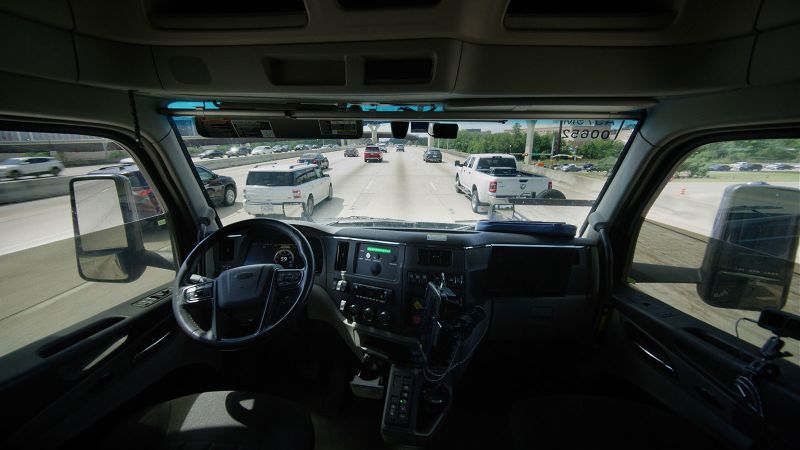Driverless trucks have commenced their first official regular long-haul routes, specifically navigating roundtrips between Dallas and Houston. This mission marks a significant milestone in the evolving landscape of transportation, as autonomous driving technology seeks to revolutionize shipping and freight logistics. The recent announcement from Aurora, an autonomous trucking firm, indicates that their inaugural commercial service has been launched in Texas, featuring partnerships with prominent companies such as Uber Freight and Hirschbach Motor Lines. These companies specialize in delivering both time-sensitive and temperature-sensitive freight. Notably, both partners undertook extensive test runs with Aurora prior to this launch, during which safety drivers were present to monitor the technology, which is known as the “Aurora Driver.” However, as of now, this new commercial operation will proceed without the presence of safety drivers, emphasizing a bold step toward full autonomy.
Chris Urmson, the CEO and co-founder of Aurora, expressed significant enthusiasm about the launch, emphasizing that the firm was established with the goal of delivering the benefits of self-driving technology in a safe, rapid, and extensive manner. He mentioned that Aurora is the first company to successfully and safely operate a commercial driverless trucking service on public roads, a claim that underlines their pioneering role in this field. The trucks are outfitted with advanced computational and sensory technology that enables them to accurately perceive their surroundings over a distance equivalent to more than four football fields. Throughout four years of operation and practice, the technology applied by Aurora has efficiently handled over 10,000 customer loads. Remarkably, as of the latest updates, the company has successfully completed over 1,200 miles of transportation without requiring human intervention inside the truck, setting a precedent for future endeavors in the domain of autonomous transport.
Initially, Aurora is deploying a single self-driving truck for its operations but has plans to scale up this initiative significantly by the conclusion of 2025. The advent of this technology has captured considerable attention, especially given the exaggerated expectations surrounding autonomous vehicles over the past decade. Prominent automakers such as Tesla and GM have dedicated substantial investments into this sector, reflecting a widespread belief in the transformative potential of self-driving technology. Texas and California have emerged as pivotal regions for testing autonomous driving, given their regulatory environments and expansive road networks conducive to such innovations.
In addition to Aurora, a variety of other companies are also making strides in the autonomous trucking field. Gatik, based in California, is engaged in short-haul deliveries for well-known retailers including Walmart. Furthermore, Kodiak Robotics operates freight deliveries on a daily basis across southern regions, albeit with safety drivers onboard. Meanwhile, Waymo, a company within the Google parent organization Alphabet, had previously operated an autonomous trucking division but chose to disband it in 2023 in favor of concentrating on self-driving technology for ride-hailing services.
Despite these advancements, there remain substantial concerns voiced by both consumers and transportation officials regarding the safety of autonomous vehicles. To address such apprehensions, Aurora has released its own safety report this year, elaborating on the operational frameworks and safety mechanisms of its technology. Moreover, unions representing truck drivers are typically opposed to the rise of driverless technology, citing worries over potential job losses and general safety concerns associated with autonomous operations.
Earlier this year, the Federal Motor Carrier Safety Administration declined a petition presented by autonomous driving firms Waymo and Aurora, aimed at replacing traditional warning devices—commonly used when a truck is immobilized on the road—with cab-mounted beacons. This decision came after the Transport Workers Union raised concerns that such changes could compromise safety standards, reaffirming the ongoing tensions between technological advancements and traditional labor concerns within the transport industry. The discourse surrounding autonomous trucks continues to evolve, as companies like Aurora push the envelope on what is possible in modern transportation.



